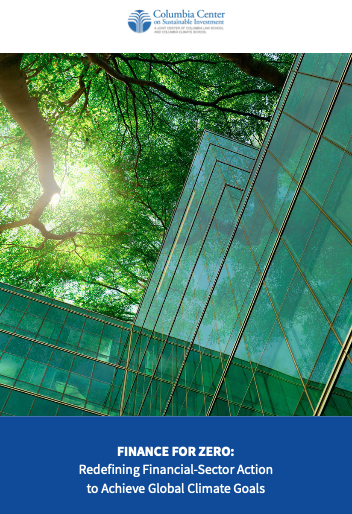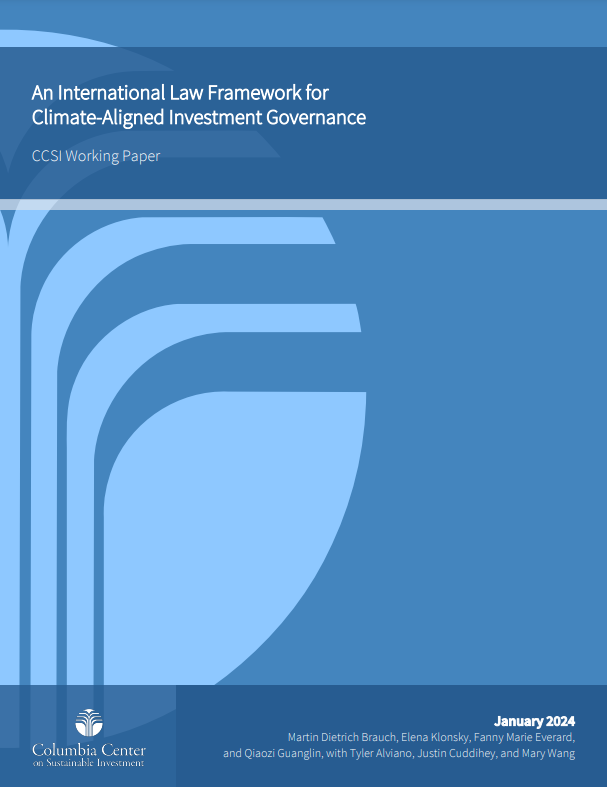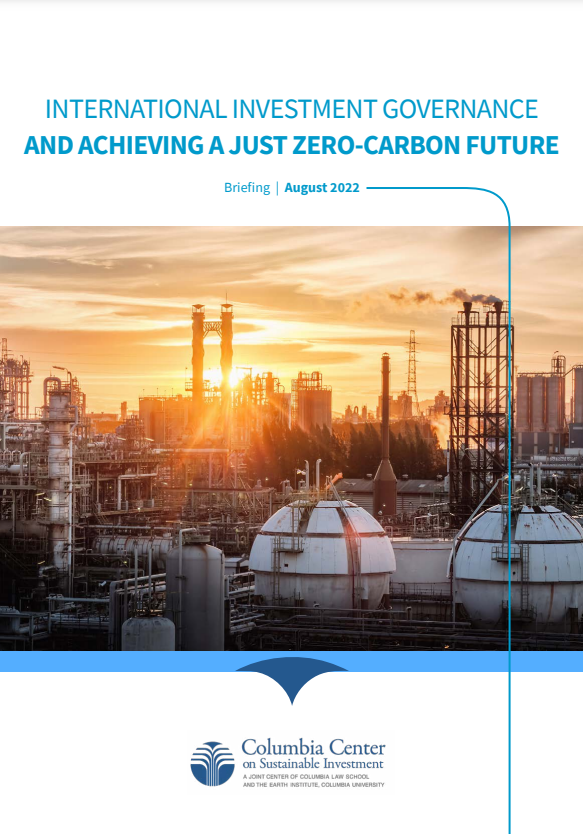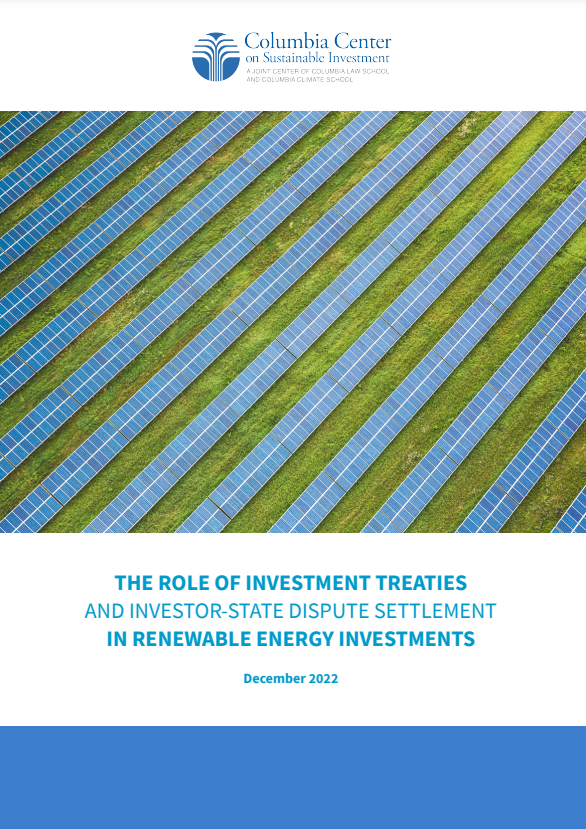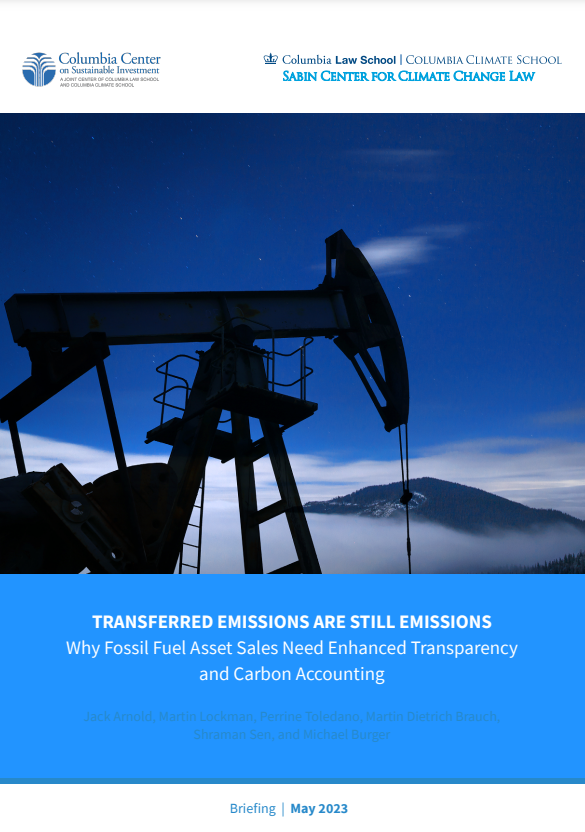We examine and develop solutions for policy, legal, financial, and data-related aspects of investment for climate change mitigation and adaptation. Our work spans economic sectors, with a focus on mining and metals, renewable energy, the financial sector, and agriculture and food systems.
Greenhouse Gas Emissions & Value Chains
To plan for the decarbonization of mineral and industrial value chains, we need good data. However, a multitude of methods exist for accounting greenhouse gas (GHG) emissions. In the absence of a verifiable, comparable, and widely adopted emissions reporting framework, companies, investors, consumers, and governments cannot track embodied emissions of key materials and products throughout their value chains. The Coalition on Materials Emissions Transparency (COMET) has the objective of creating a harmonized GHG calculation framework applicable to all mineral and industrial supply chains.
Realigning financial sector activities is also critical in “making finance flows consistent with a pathway towards low GHG emissions and climate-resilient development,” in line with Paris Agreement goals. CCSI’s Finance for Zero report evaluates net-zero financial sector commitments and initiatives and proposes how to realign financial institutions and their coalitions with the Paris Agreement.
Climate Change & Energy
Associated petroleum gas (APG) is often flared or vented, causing health and environmental challenges and wasting a valuable non-renewable resource. CCSI proposes a policy framework for APG that provides guidance for regulators, policymakers, and industry leaders seeking to develop practical approaches to unlock its economic value, improve energy efficiency, expand access to energy, and contribute to climate change mitigation. The framework aims to contribute to the World Bank’s Zero Routine Flaring by 2030. In a carbon-constrained world, the framework is also critical to take advantage of existing hydrocarbon fields and infrastructure to address immediate energy needs while transitioning to clean energies. Check our recommendations to Europe.
CCSI has estimated the global carbon footprint of the oil refining and petroleum sales sectors since 1980 in 83 countries, adopting a supply-chain approach. The study, supported by the MacArthur Foundation, also assesses the life-cycle greenhouse gas emissions from the oil refining and petroleum products sales businesses of the “Oil Supermajors”—BP, Chevron, Eni, ExxonMobil, Shell, and TotalEnergies. Read more and download the study here.
In a widely reported trend, the “Oil Supermajors”—BP, Chevron, ConocoPhillips, Eni, ExxonMobil, Shell, and TotalEnergies—are selling off many upstream fossil fuel assets. This report, jointly written with the Sabin Center on Climate Change Law and in partnership with the Institute for Energy Economics and Financial Analysis (IEEFA), assesses the regulatory landscape governing the corporate disclosure of fossil fuel asset sales, outlines the scale of fossil fuel asset sales by the supermajors, and proposes regulatory reforms to enhance transparency around fossil fuel asset sales by oil and gas companies.
Investment & Trade Law & Climate Policy
The December 2022 CCSI report The Role of Investment Treaties and Investor-State Dispute Settlement (ISDS) in Renewable Energy Investments confirms decades of research that legal protections in investment treaties do not have a discernible impact on promoting foreign investment flows, including in renewables. In addition, investment treaties can be extraordinarily costly for states and for the policy objective of encouraging investment in renewables. A December 2023 brief titled Investor–State Dispute Settlements: A Hidden Handbrake on Climate Action by CCSI and the International Institute for Environment and Development (IIED) shows that fossil fuel companies have secured at least US$82.8 billion in damages through ISDS. Instead of investment treaties and ISDS, countries should strengthen domestic legal frameworks that promote climate-aligned investment governance through a mutually beneficial, long-term, flexible, and durable investment climate.
Growing cries for action to effectively address the climate and other environmental crises hold important implications for the governance of cross-border investments. Policymakers and environmental advocates have often overlooked how provisions granted by states in international investment agreements (IIAs) have been used by investors to challenge government measures taken in the public interest to protect the environment and advance environmental justice. This 2019 paper, published in the Sciences Po Legal Review issue devoted to the climate crisis, explains how the investor-state dispute settlement (ISDS) mechanism, made available to investors in thousands of bilateral and multilateral trade and investment agreements, may influence the future of environmental justice. A shorter version of this piece was published on the Kluwer Arbitration Blog on November 13, 2019.
The special protections under international law that the Energy Charter Treaty (ECT) gives to fossil fuel investors and their investments go in the opposite direction of what is needed for the world to decarbonize its energy matrix and fight the climate emergency. This article, available in English and Spanish, discusses the efforts to reform the treaty, explains why terminating it would be a better idea, and recommends withdrawing from it and neutralizing its survival clause as a second-best strategy. This follow-up analysis of the June 2022 Agreement in Principle on the so-called “modernization” of the ECT concludes that the proposed treaty amendment fails to rise to the mounting global challenges regarding energy investment, climate action, and sustainable development. Reflecting on how states could best fill the vacuum of the ECT, this piece discusses the role of multilateralism and international law for climate-aligned, sustainable investment in a just energy transition.
Existing investment treaties do not and cannot advance climate goals. There is a fundamental misalignment between the existing international investment regime—including its centerpiece: investor–state arbitration—and the actions needed to meet the objectives of the international climate regime and avoid catastrophic climate change. Read CCSI’s work on a wholly new regime for investment governance, moving away from investment protection and arbitration.
Alongside preparing for climate change, Africa should invest in the zero-carbon future, avoiding locking itself into the declining fossil fuel–based economy while taking advantage of the opportunities presented by decarbonization. However, investment treaties and investor–state dispute settlement (ISDS) hinder, rather than catalyze, the transition to climate-friendly investment opportunities. This report shows how Mozambique’s international investment agreements and publicly available oil, gas, and coal contracts allow foreign investors to bypass the national judicial system and bring multi-billion-dollar ISDS claims against Mozambique. Such claims can result in significant costs for the country, and they also have a chilling effect on new public-interest regulations in areas such as health, environment, community rights, or labor protections. This blog explores the effects of investment treaties on climate action by looking at the Energy Charter Treaty (ECT), extrapolates these lessons to other treaties, and concludes with ideas for climate-aligned investment governance.
The valuation of fossil fuel assets and the quantification of compensation amounts under investment treaties and arbitration, as well as under domestic compensation schemes, are hot economic and legal topics in the context of a changing climate, the energy transition, and the mounting risk of climate-related arbitrations by fossil fuel investors to complain against inherently disruptive yet urgent climate policy. CCSI and the Sabin Center for Climate Change Law co-hosted the expert webinar Compensation for a Just Energy Transition to a Zero-Carbon World: Practices and Principles in International (Investment) Law and Domestic Law. Watch the webinar recording or read the event highlights. Read also CCSI's blog Taking Equity into Account in International and Domestic Legal Frameworks on Compensation for Climate Change and the Energy Transition and CCSI's work on valuation and damages as a critical element of investor–state dispute settlement (ISDS) reform.
The message is by now clear: our global economy must be fundamentally reoriented and redeployed in order to achieve the SDGs and the commitments of the Paris Climate Agreement. This requires action by all stakeholders, including non-financial and financial firms, debt and equity investors, government policymakers, and consumers. In terms of the amount of money required, it has been estimated that meeting the SDGs will require $5 to $7 trillion annually, with investment needs for developing countries amounting to roughly $3.3 to $4.5 trillion per year. While a big picture view of and strategic thinking regarding the entire economic ecosystem is necessary to generate such investments, this paper, produced in conjunction with the UN Inquiry into the Design of a Sustainable Financial System, focuses on the actual and potential role of one type of financial flow—FDI—in achieving the transition to a low-carbon, just, and sustainable world and, more specifically, FDI flows into developing countries.
The European Union (EU)'s proposed Carbon Border Adjustment Mechanism (CBAM) would impose a carbon price on EU imports to address concerns about competitiveness and carbon leakage. It tends to prompt reactions in developing as well as developed countries, whether by enacting similar unilateral measures or initiating disputes at the World Trade Organization (WTO) to challenge its compatibility with international trade rules. Its creation also stresses the need for a harmonized carbon accounting methodology to measure the carbon footprint of traded materials and products. CCSI and partners co-hosted an interactive expert panel on economic, legal, political, and carbon accounting aspects of the EU CBAM and similar mechanisms that may be created elsewhere to combat the climate emergency. Learn more by watching the video recording and reading the report of the event.
Aligning investment treaties with sustainable development means, among other things, catalyzing relevant investment that otherwise would not happen, and ensuring that treaties identify and avoid or mitigate environmental, social and other harms that may be caused by the investments that the treaties support or induce. To advance understanding of these issues, CCSI organized and hosted a two-day workshop: Policy Reset: Debating Proposals for a More Planet-Friendly Trade Model. This multi-stakeholder workshop, which took place on February 23-24, 2017, focused on (1) collecting input on the Sierra Club’s proposed climate-friendly approach to trade and investment treaties; and (2) identifying lessons learned from roughly 20 years of experience with governments including environment- and labor-related provisions in their investment treaties.
Climate Justice & Land
Finding ways to integrate climate considerations and climate services into investment decision-making and governance can help governments, communities, and investors better prepare for the challenges posed by climate change. Read our Guidance for National and Local Governments on the topic and our Scoping Study on Approval Processes for Agricultural Investments in Senegal.
Land rights are a critical component of climate mitigation, while climate adaptation will require new approaches to land use and governance. Through convenings, research, and support, we work to improve understanding and practice.
Sustainable investment in natural resources and renewable energy projects must grapple with challenges around land use and land rights. We believe there is a critical need for greater consideration of land use and rights in climate policy conversations.
Solar, wind, and other renewable energy are a crucial component of the transition to a low-carbon future, yet these land-intensive solutions often have negative impacts on human rights, increasing the risk of project failure, energy shortages, and political upheaval. We’re adapting lessons from other land-based investments to help renewables investments avoid common pitfalls.
Land-intensive climate solutions, such as solar and wind energy, are a crucial component of the transition to a low-carbon future, yet if not done right, they risk undermining rights and project failure. We’re taking lessons from other land-based investments to help renewables investments avoid common pitfalls.
Socio-bioeconomy presents a promising approach to sustainable development. Because the bioeconomy values the sustainable utilization of renewable biological resources, nature-based solutions (NbS), which are a facet of the socio-bioeconomy, gain increasing prominence. This Policy Brief aims to propose a comprehensive framework for investment governance aligned with socio-bioeconomy, offering specific policy recommendations that G20 countries can adopt and help promote globally.
Climate Change & Mining
Domestic laws are the ideal legal instrument to regulate the mining sector’s contribution to climate change mitigation and adaptation. Even so, as a stop-gap measure, governments may consider updating model mining development agreements (MMDAs) or negotiating climate-related contractual provisions. Read CCSI’s publications on how governments are using, and how they can use, investor–state mining contracts to advance climate goals.
The Africa Mining Vision (AMV) provides guidance for the industrialization of African countries by leveraging their mining sector. However, it does not include guidance on how governments should embrace the climate change agenda. The localization of global value chains induced by rising carbon costs can represent an opportunity for better and further industrialization, deeper linkages, and sustainable development. CCSI's research explores these opportunities and suggests foundations for a climate-smart update of the AMV.
As we seek to meet the challenges of climate change impacts, many commodities will play an increasing role in decarbonizing economies. There are increasing challenges of addressing the emissions from extraction of these commodities needed to support the zero-carbon transition. CCSI, in a consortium with Carbon Trust, RMI, and the Payne Institute for Public Policy at the Colorado School of Mines, developed the Net Zero Roadmap to 2050 for Copper and Nickel Value Chains to support the copper and nickel mining sectors in taking collective, coordinated action by providing a clear, approachable, and accepted roadmap for decarbonization. The project was commissioned by the International Finance Corporation (IFC) and the International Council on Mining and Metals (ICMM), as part of the World Bank Group’s Climate-Smart Mining initiative.
The World Bank's Mining Sector Diagnostic (MSD) tool, launched in 2013, helps strengthen the governance and impact of the mining sector, including with respect to the investment environment within a given country. It is used to assess performance and provide a basis for future engagement. Working with the World Bank, CCSI is creating a climate change and energy transition module for the MSD, with a series of indicators and questions to be included in the diagnostic process under four pillars: (1) General Policies, (2) Mitigation / Decarbonization, (3) Adaptation / Resilience, and (4) Market Opportunities for Climate Action Minerals.
Training & Climate Change
Climate Change has been integrated as a core module into CCSI's Executive Trainings, addressing the climate change impacts of respective investments and investment governance.
- The Executive Training on Extractive Industries and Sustainable Investment gives an overview of various policy developments that have driven and will continue to drive the energy transition, how the private sector is responding, and how the energy transition may impact extractive investments and resource-rich developing countries.
- The Executive Training on Sustainable Investments in Agriculture covers the climate change impacts of agricultural investments and how agricultural investments need to adapt to climate change.
- The Executive Training on Investment Treaties & Arbitration for Government Officials addresses both how treaties need to adapt to climate change and whether ongoing reform processes are addressing the climate change impacts of international investment governance.
CCSI researchers also taught a workshop on what decarbonization will mean in practice for countries and companies, covering legal, technology, financial, and other aspects.
CCSI’s MOOC on Mining and Materials for Sustainable Development Transformations addresses challenges and opportunities for mining and materials value chains in the energy and digital transitions needed to achieve climate goals.


